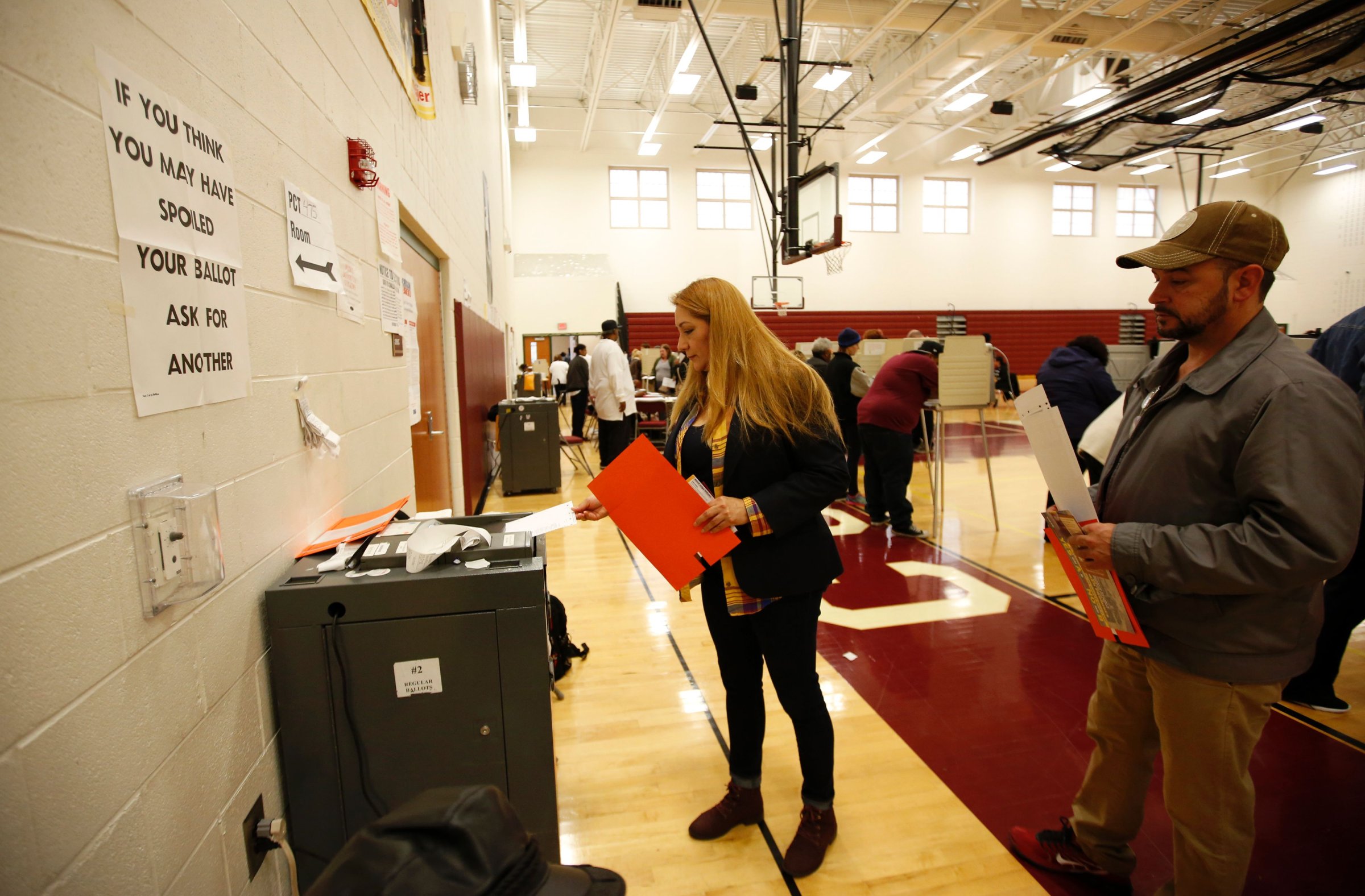
More than 80 voting machines in Detroit malfunctioned on Election Day, officials say, resulting in ballot discrepancies in 59% of precincts that raise questions about the reliability of future election results in a city dominated by Democratic and minority voters.
“This is not the first time,” adds Daniel Baxter, elections director for the city. “We’ve had this problem in nearly every election that we administer in the city of Detroit.” Baxter says that the machines were tested for accuracy before election day in accordance with state and federal guidelines, but that sometimes the machines “hit up against each other and malfunction” as they’re being transported to the precincts.
The machines were optical scanners, meaning they registered and counted the votes marked on paper ballots. Many of the machines jammed over the course of election day, perhaps because Michigan had a two-page ballot this year, which meant that paper ballots were collected but inconsistently recorded by the machines. Michigan does not have early voting, so any mechanical malfunction would necessarily happen on election day, since that’s the only day the machines are used. That’s why so many machines malfunctioned at the same time. “You don’t expect a laptop to last 10 years, and you shouldn’t expect a voting machines to last 10 years,” says Detroit City Clerk Janice Winfrey.
The errors were found as part of a recount process prompted by losing Green Party candidate for President Jill Stein. The Michigan recount was halted last week after a judge determined that Stein, who has urged recounts in several states, did not qualify as an “aggrieved party” in the election, making her request for a recount invalid. Trump won Michigan by 10,704 votes. “The recount campaign was premised on the notion that we deserve a voting system we can trust,” said Dr. Jill Stein in a press call Tuesday about the recount efforts. “No, we do not have a voting system we can trust.”
But even if the recount had moved forward, the precincts in question would not have been eligible for the recount because of an obscure 1954 Michigan law that prevents recounting votes if there is any discrepancy in ballots. As a result, those ballot counting machines that experienced mechanical malfunction are ones that cannot be recounted to divine voter intent from the paper ballots.
The state’s voting laws also specify that if there’s any kind of mistake made by a poll worker, even something as small as forgetting to tally one person on the entrance log, the votes in that precinct cannot be recounted. “Our laws don’t allow for human error,” said Winfrey. “That’s unfortunate.”
Pamela Smith, president of voting-accuracy organization Verified Voting, said she received enough calls from the Detroit area on Election Day to cause her to call a state official to express concern. “They were running out of storage space for the ballots,” she says, noting that paper ballots were piling up on desks and other unsecured surfaces as technicians raced to fix the machines. “If you’ve only got a partial count from a voting place, something has to happen to the rest of the ballots.”
Winfrey and Baxter say the city will be getting new voting machines in 2017.
“There’s a dire need to modernize our system of running election across the country and particularly in Michigan,” says Jocelyn Benson, former dean of Wayne State Law School and founder of the Michigan Center for Election Law, who noted the large number of voters in the state who were recorded leaving their ballots partially blank. “When you have 75,000 votes for president that are blank, that could be because 75,000 people didn’t vote for President, or it could be because you have 75,000 votes that weren’t counted.”
Even if the recount had moved forward, Clinton would have been unlikely to have picked up the state. Before the recount was halted, 2.1 million votes were recounted, and only 102 of those were added to Clinton’s tally. If she had won Michigan after a recount, Clinton would have been unlikely to win the Electoral college without Wisconsin, Pennsylvania or Florida. Trump’s victories in Pennsylvania and Wisconsin were verified earlier this week.
But the Detroit voting fiasco illustrates the larger problems of a voting system. Without post-election audits to catch problems, Michigan is unlikely to radically improve its election procedure anytime soon. “By doing audits you actually increase voter confidence,” says Smith of Verified Voting. “And that’s not gonna happen.”
More Must-Reads from TIME
- Cybersecurity Experts Are Sounding the Alarm on DOGE
- Meet the 2025 Women of the Year
- The Harsh Truth About Disability Inclusion
- Why Do More Young Adults Have Cancer?
- Colman Domingo Leads With Radical Love
- How to Get Better at Doing Things Alone
- Michelle Zauner Stares Down the Darkness
Write to Charlotte Alter at charlotte.alter@time.com